As the Telegraph says, " the Middle East’s least-watched war"
Shiia
Houthi rebels attack presidential palace in Yemen in 'attempted coup'
Houthis,
backed by Hizbollah and Iran, are now in direct confrontation with
al-Qaeda and the Yemen government
19
January, 2015
Fighting
between a Shia militia and government forces engulfed the Yemeni
capital Sana’a yesterday, as the Middle East’s least-watched war
spread further chaos across the region.
The
country’s information minister, Nadia al-Saqqaf, said rebels loyal
to the Shia Houthi movement had attacked the presidential palace in
what she called “an attempted coup”.
She
also accused troops loyal to the former president, Ali Abdullah
al-Saleh, ousted by a popular uprising during the “Arab Spring”,
of being behind the violence.
Fighting
including artillery fire raged across the capital most of the day,
despite early attempts at a ceasefire. Residents said bodies were
left lying in the streets.
“This
is a step toward a coup and it is targeting the state’s
legitimacy,” Ms Saqqaf told The Associated Press.
The
Houthi movement swept into Sana’a last September, with the national
army loyal to President Abd Rabbuh Mansur Hadi apparently unable to
stop it, despite the government’s backing from western powers
including Britain and the United States.
Since
then, it has run security in the capital. Under the terms of a
ceasefire, it has allowed Mr Hadi and his government to remain in
office, but the ascent of the Houthis, who are close to the Lebanese
militia Hizbollah and are seen by many as an Iranian proxy, is a
severe blow to the West.
They
had previously fought a campaign largely aimed at greater autonomy
for the enclave of northern Yemen occupied by their Zaydi Shia
followers, but they are now in direct confrontation not only with the
government but with the other major player in Yemen’s multi-sided
civil war, al-Qaeda in the Arabian Peninsula.
Yesterday’s
fighting shattered hopes that a compromise could be found in which
the Houthis would be given greater guarantees and more say in the
government in return for joining in the fight against al-Qaeda, seen
as a common interest for all factions in Sana’a.
Ms
Saqqaf’s intervention emphasises concern, shared by the US, that Mr
Saleh is so enraged by his enforced resignation three years ago after
three decades in office that he will stop at nothing to sabotage his
successor – once his vice-president.
He
would not be satisfied with a settlement between the Houthis and Mr
Hadi that continued to leave him, along with the numerous relatives
he placed in powerful positions in the army and security services,
out in the cold.
Most
westerners have left Yemen for fear of kidnapping by al-Qaeda gangs.
Local
residents said yesterday’s fighting began around dawn. It was not
clear who started it, but the Houthis say they responded to a
shelling of their positions by the army.
Houthi
artillery fire then hit the presidential palace – which was also
hit by a bomb attack when Mr Saleh was still in residence, wounding
him severely, and which Mr Hadi does not occupy.
The
Houthis then attacked an army camp nearby, before going on to seize
the state news agency and television station.
Late
in the afternoon the state news agency Saba said a new ceasefire had
come into effect.
The
intervention by the Houthis has given rise to a series of conspiracy
theories, one suggesting that despite western allies’ backing for
Mr Hadi, regional powers such as the United Arab Emirates are keen to
back Mr Saleh, whom they see as a fiercer opponent of the local
Muslim Brotherhood movement, known as al-Islah. The UAE is viscerally
hostile to the Brotherhood in all its forms.
The
western allies themselves have been left blindsided. “Working to
promote ceasefire and political negotiations,” the British
ambassador, Jane Marriott, tweeted. “Challenging times.”
Yemeni Government Admits It Has Lost Control Of Nation Amid "Attempted Coup"
19
January, 2015
In
what Yemen's information minister described as an "attempted
coup" Shia
Houthi rebels (backed by Hizbollah and Iran) have surrounded
the Yemeni Presidential Palace putting
them, as The Telegraph reports, in direct confrontation with al-Qaeda
and the Yemen government. Amid hopes of a compromise deal or
cease-fire in the conflict that has been under way since September
when the Houthis swept into Sana'a, the latest reports are the nation
has gone from bad to worse...
- YEMENI PM SAID SURROUNDED BY HOUTHI MILITIAS: CNN
- YEMEN INFORMATION MINISTER SAYS GOVERNMENT HAS LOST CONTROL OVER COUNTRY -- CNN
Oil
prices, interestingly, fell on the increasing tensions today -
as we pre-suppose the market is pricing in a successful coup - and
the ensuing pump-fest of supply (at any price - just give us
revenues) will trump Yelemni tribes threats to cut off supply if the
President is harmed.
*YEMEN
HOUTHI REBELS SEIZE STATE NEWS AGENCY, TV STATION: A
Yemen official says Houthi rebels seize state news agency, TV station in 'step toward coup'
- *YEMENI MINISTER SAYS SHI'ITE MILITANTS ATTEMPTED COUP: ARABIYA
*YEMENI
TRIBES TO CUT OIL SUPPLY IF PRESIDENT HARMED: JAZEERA
Tribes in Marib say will cut supplies if Shiite rebels harmed President Abdurabuh Mansur Hadi, Al Jazeera reports without saying where it obtained the information.
Then
this...
- *YEMEN CEASEFIRE IN CAPITAL TAKES EFFECT, AFP REPORTS
Which
didn't last long...
- *YEMENI PM SAID SURROUNDED BY HOUTHI MILITIAS: CNN
- *YEMEN PM'S CONVOY COMES UNDER FIRE FROM HOUTHI FIGHTERS: AFP
- *EXPLOSION HEARD NEAR PRESIDENTIAL COMPOUND IN YEMEN: ARABIYA
*
* *
And
then as CNN confirms,
As
Bloomberg reports,
Yemen’s Houthi gunmen have laid siege to the residence of Prime Minister Khaled Bahah, Information Minister Nadia Sakkaf said, in the latest escalation between the Shiite group and authorities backed by Sunni Gulf Arab states.
The fighters have taken positions on buildings surrounding the palace in Sana’a, Sakkaf said on Twitter. Earlier, clashes broke out between Houthi fighters and presidential guards outside the compound of President Abdurabuh Mansur Hadi, prompting his intervention to broker a ceasefire. Eight people were killed in the fighting, Sakkaf said.
...
Tensions rose in Sana’a after Houthi fighters kidnapped Ahmed Bin Mubarak, the president’s chief of staff, on Jan. 17. Sakkaf said Hadi and the Shiite group were holding talks to agree on Bin Mubarak’s release. She didn’t elaborate.
*
* *
In
case you are confused, here is a quick glance at the Middle East
relationships mosaic...
As
The Telegraph explains... Who
are the Houthi rebels?
While the West was transfixed by jihadi beheadings of hostages in Syria last autumn, another history-shaking episode in the breakdown of the Arab world was playing out 1,500 miles away.
Western leaders hardly seemed to notice. But a once obscure Shia Muslim rebel movement known as the Houthis swept from the north into Yemen’s picture-postcard capital Sana’a, barging aside the US- and UK-backed army, and seized effective control.
Any thought that this was a random event in a country whose politics and feuds have always had the capacity to baffle its own people, let alone outsiders, was set aside with a single statement.
An Iranian politician close to that country’s Supreme Leader, Ayatollah Ali Khamenei, could not contain himself. Ali Reza Zakani, an MP, boasted that Sana’a was now the fourth Arab capital in Iranian hands – after Beirut (through Hizbollah), Damascus (through President Assad) and Baghdad (through Iraq’s democratically elected Shia-led government).
The extent to which Iran physically armed the Houthis is disputed, though a ship carrying weapons apparently from Iran was seized in Yemeni waters two years ago.
However, the Houthis have close ties to Hizbollah, and the fact remains that Shia militias or armies now control parts of both Saudi Arabia’s southern border, with Yemen, and northern border, with Iraq.
That is a stunning blow for Saudi Arabia, a hardline Sunni absolute monarchy which regards Iran, a Shia theocracy, as its mortal enemy for historic and political as well as religious reasons.
Read more here...
Who
are the competing factions?
The government: still the government, in theory, through the ceasefire negotiated with the Houthis after they took Sana’a. Pro-western and with some electoral legitimacy after Mr Hadi won an election in 2012. Admittedly, he was unopposed – but he had the support of both the parliamentary majority and opposition.
Houthis: the Houthis’ adherents are Zaydi Muslims, followers of the Shia religious school historically seen as closest to Sunnis, which made it easier for a Zaydi caliph to rule much of present-day Yemen for many centuries until the 1962 revolution. However, the sect has come to be dominated by a clan that owes allegiance to a now dead rebel leader, Hussein Badreddin al-Houthi, who declared war on the government in 2004. The Houthis' Shiism has led them to a pro-Iran, anti-Western position – its adherents carry flags saying, “Death to America, Death to Israel”.
al-Qaeda in the Arabian Peninsula: the settlement that brought Mr Hadi to power was also supposed to provide Yemen with a common front to take on al-Qaeda’s jihadist insurgency, backed by American air-power. Unfortunately, military success on the ground was countered by more attacks by AQAP on sectarian rivals like the Houthis, giving the latter a further pretext to oppose the government.
Al-Islah: a Sunni Islamist political movement which is Yemen’s version of the Muslim Brotherhood, it is the main constitutional opposition to the government. Its leaders have been targeted for reprisals by the Houthis, as the two represent the rival sects of political Islam.
Al-Hirak: just to complicate matters further, southern Yemen – centred on the part of the country once run by the British Empire and then by the Soviets – has a strong secessionist movement. Socially more liberal, even non-secessionist southern sheikhs occasionally surprise visitors by lapsing into fond memories of both British and Soviet colonialism.
Former President Ali Abdullah al-Saleh and General Ali Mohsen al-Ahmar: the eminences grises of Yemeni politics, these two distant cousins ran the country for decades, Mr Saleh as president and Gen Mohsen as effective security chief.
The two men fell out in 2011 as Mr Saleh refused to quit in the face of an “Arab Spring” uprising. In a strange twist, Mr Saleh, who fought the Houthis for years, is now said to be in such a sulk at having been forced from office that he is backing them with those parts of the army apparatus controlled by his many relatives, partly out of revenge against Gen Mohsen, who has retained power over a rival army faction.





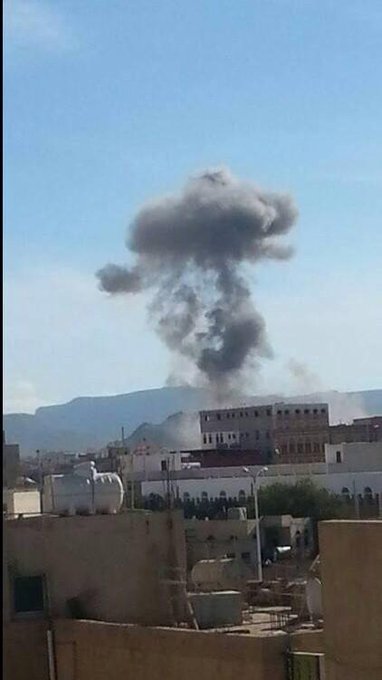
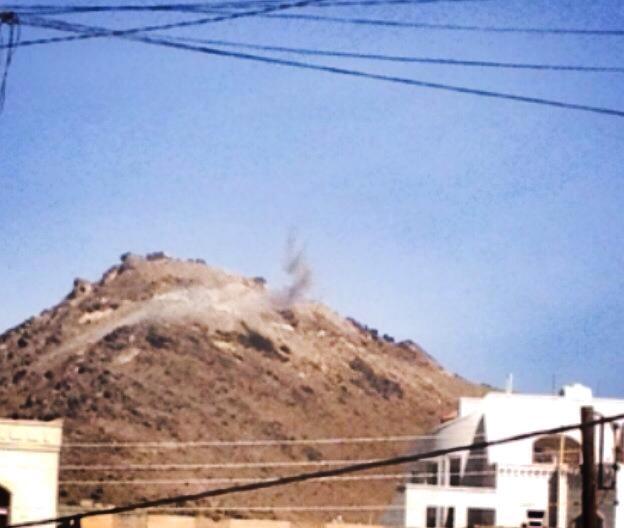

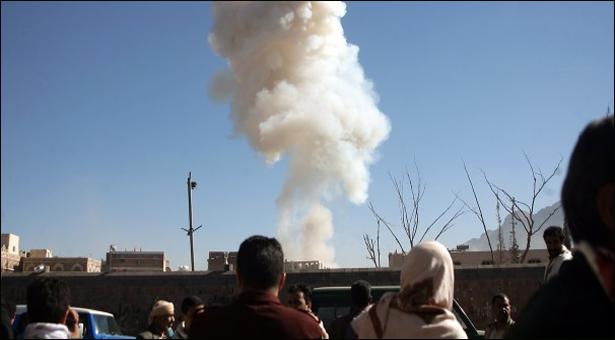

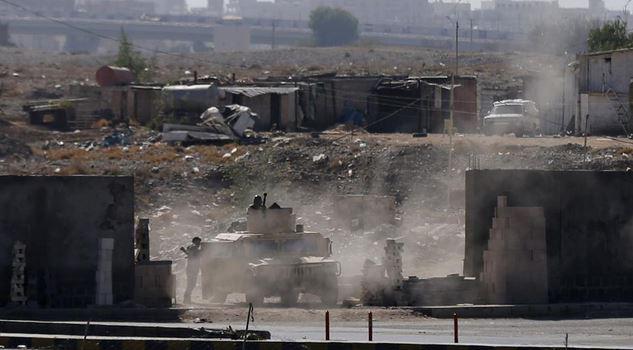

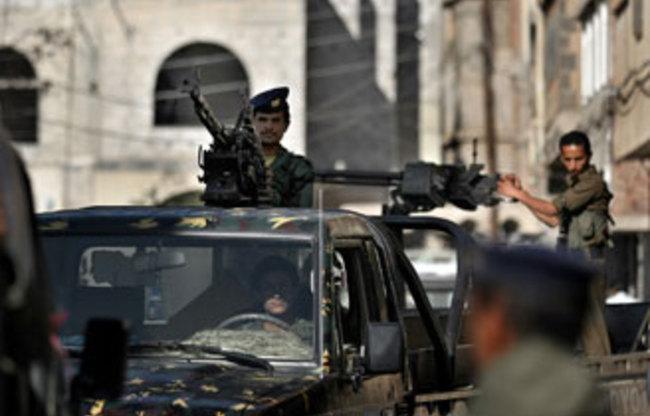


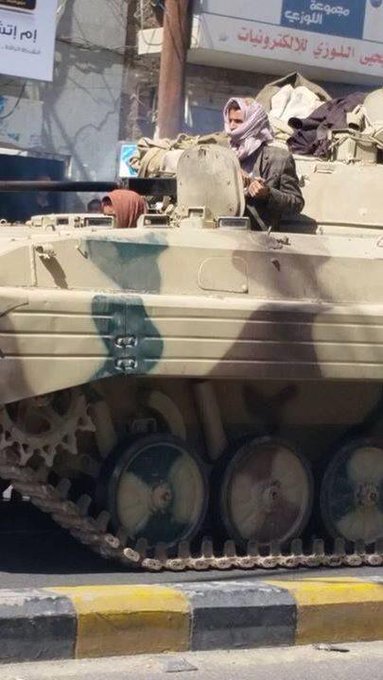
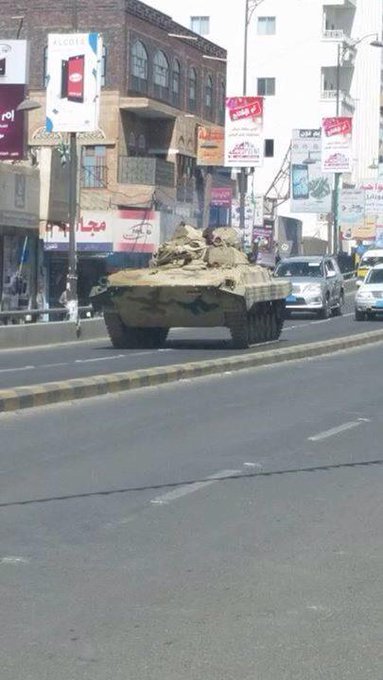
No comments:
Post a Comment
Note: only a member of this blog may post a comment.